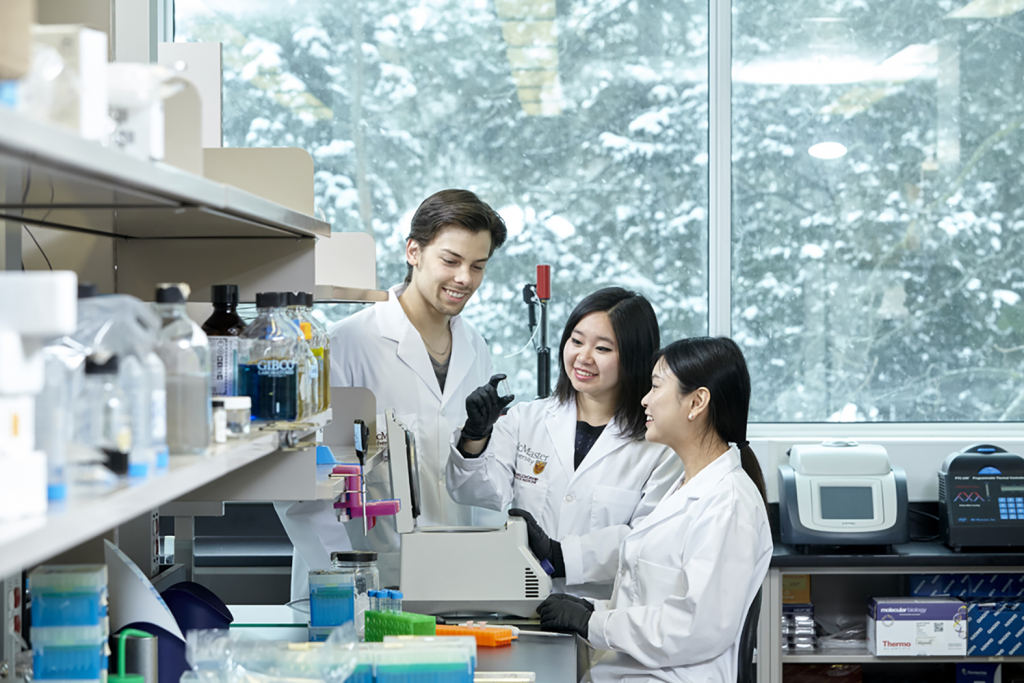Home

Program Director
A NEW GENERATION OF BIOMEDICAL SCIENTISTS & ENTREPRENEURS WHO WILL LEAD IN BOTH DISCOVERY AND COMMERCE
From the Director
Welcome to the Biomedical Discovery and Commercialization (BDC) program. Since its inception in 2015, this multidisciplinary training program, concentrated in the biomedical sciences, equips graduates with strong discovery research skills, business acumen and a meaningful experiential connection to Health Sciences related sectors. Built upon an innovative ‘4+1’ Bachelor – Master program with over 50 undergraduate BDC students and 30 Master of BDC graduate students per year, this program has quickly become a key driver in seeding the next generation of entrepreneurial, scientific, and business leaders in the Canadian pharmaceutical, biotechnology, and biomedical investment sectors and beyond.
CREATING LEADERS IN DISCOVERY & COMMERCE
A unique educational experience for students seeking first-rate training in biomedical sciences with an emphasis on drug discovery and development.
Combines specializations for
MULTIFACETED TRAINING
Opens doors to
DIVERSE EMPLOYMENT OPPORTUNITIES
Offers a
COMPETITIVE EDGE IN THE BIOMEDICAL FIELD
THESE ARE THE SKILLS NEEDED TO THRIVE IN THE PHARMACEUTICAL, THERAPEUTIC, CONSULTING, AND BIOTECH SECTORS
The Biomedical Discovery and Commercialization (BDC) program is a limited enrollment offering by the Department of Biochemistry and Biomedical Sciences with key contributions from the DeGroote School of Business. The training program encompasses level III and IV of undergraduate studies as well as a 12-month course-based Master program. The latter includes a four to eight-month internship (longer terms may be available) in health sciences related sectors.
This limited enrollment program affords a unique educational experience for students seeking first-rate training in the biomedical sciences with an emphasis on drug discovery and development. Advanced training in biomedical discovery comes from accomplished research faculty who provide individual mentorship in cutting-edge research investigations, and award-winning professors in the DeGroote School of Business instruct students in the fundamentals of commerce. At the nexus of science and business, the program reaches out in an extraordinary way to the commercial health sciences sector for its participation, both as guest lecturers in the classroom and as mentors in the community.

WHAT ARE STUDENTS AND
INDUSTRY PROFESSIONALS SAYING ABOUT THE BDC PROGRAM?
Learn more about BDC from our students and industry partners.


